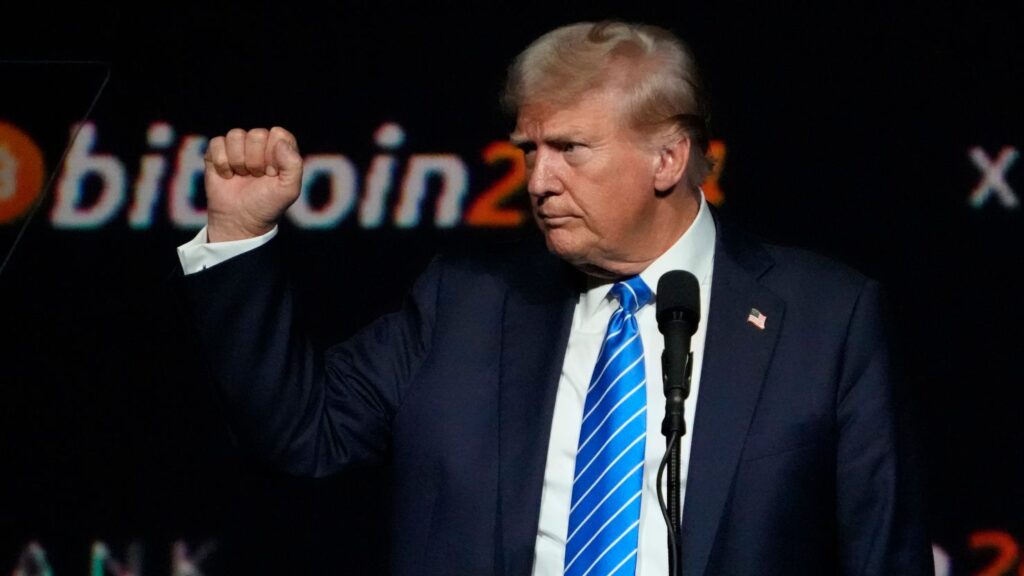In a world where economic policies and financial markets are intertwined, the relationship between the Federal Reserve and the U.S. government can profoundly influence global economies. When a potential shift in this dynamic appears, particularly through legal disputes, it can send ripples through the market, prompting reactions from traditional investors and cryptocurrency enthusiasts alike. Recent legal developments have sparked a conversation about the autonomy of the Federal Reserve, posing questions about how these changes might impact assets like Bitcoin—a digital currency often perceived as an alternative to traditional financial systems.
Federal Reserve Independence: A Catalyst for Bitcoin Market Dynamics?
Recent tensions between the U.S. government and the Federal Reserve have fueled discussions about the latter’s long-held independence. These conversations were heightened by a Supreme Court decision that allowed President Donald Trump the authority to potentially dismiss senior leaders at independent federal agencies. This legal precedent raises questions about whether similar actions could target the Federal Reserve, including the possibility of replacing its chair.
Potential Implications for Cryptocurrency
The notion of altering the Federal Reserve’s structure has captured the attention of Bitcoin supporters, some of whom view it as an opportunity for cryptocurrencies to gain ground. Pete Rizzo, known for hosting the Supply Shock podcast, remarked that this development might be the most encouraging sign for Bitcoin to date. With the Federal Reserve’s role being potentially questioned, perceptions of monetary stability may influence investors to consider Bitcoin as a hedge against inflation and financial uncertainty.
Thomas Fahrer, an entrepreneur in the digital asset space, expressed thoughts on social media platform X, speculating that changes in the Federal Reserve’s independence could prompt the central bank to invest in Bitcoin. While this remains speculative, it underscores the growing interrelatedness of traditional and digital financial markets.
Monetary Policy and Market Control
Jack Mallers, the founder of Strike, provided additional insights in a past interview. He suggested that within the next few years, we might witness significant shifts in how monetary policy is managed. Mallers recalled instances when President Trump hinted at wanting more oversight over the Federal Reserve, raising questions about how this could impact inflation control and market performance. Such changes might mean more active interventions in financial markets, potentially aiming to stabilize or even boost asset values, which could have complex repercussions for the dollar’s value and global trade dynamics.
Mallers implied that yield curve control—a strategy where central banks influence interest rates on government bonds—could become a tool for managing financial markets. This could potentially lead to an increase in asset prices while moderating inflation, albeit possibly devaluing the dollar in the process. These speculations illustrate the delicate balance between maintaining economic stability and adapting to changing political landscapes.
Bitcoin’s Market Status
As this discourse unfolds, Bitcoin’s market value reflects its perception as a refuge from traditional financial volatility. At the time of this analysis, Bitcoin reclaimed a price point of $81,000, a testament to its enduring appeal among investors seeking alternatives to fluctuating fiat currencies.
Frequently Asked Questions
How might changes at the Federal Reserve impact Bitcoin?
Shifts in the Federal Reserve’s independence could create market volatility, prompting investors to seek assets perceived as safe havens, such as Bitcoin. As traditional financial systems face uncertainty, Bitcoin may benefit from increased attention as a decentralized alternative.
What is yield curve control, and how could it affect financial markets?
Yield curve control is a monetary policy tool used by central banks to influence interest rates on government bonds to stabilize the economy. Its implementation could lead to higher asset prices and controlled inflation, potentially affecting the dollar’s value and international trade.
Is Bitcoin a reliable investment during monetary policy changes?
Bitcoin is often considered a hedge against inflation and currency devaluation due to its limited supply and decentralized nature. However, its volatile nature requires careful consideration and risk assessment before investing, particularly during times of economic uncertainty.
By exploring these dynamics and understanding the interplay between monetary policies and cryptocurrencies, investors can make more informed decisions in a rapidly evolving financial landscape.

